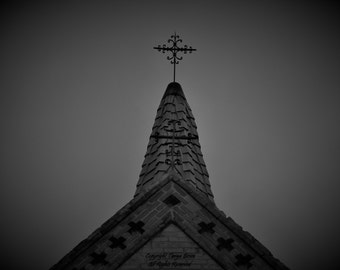A Commentary On The Great Gatsby
To start with: Gatsby's obsession with how things look. As a person, he is obsessed with how others view him. Take the green light at the end of Daisy's dock; he stands on his property, facing the water, then slowly reaches out his hand as if to grab it. Does he know Nick is watching? Probably not, but someone could be watching. And if they are, Gatsby wants them to see this longing, this desperation, for whatever the green light is, for the watcher probably does not realize whose dock that is. A person may wish for someone without a physical display. Then look at the medal and the Oxford photo. He insists that Nick sees him as he wants to be seen, as an educated war hero. While he is educated somewhat and served valiantly in the war, he must insure that Nick sees the warped version of this, the version where his family sent him to Oxford. When Gatsby brings Daisy into his house, he again forces her to see him as he wants to be seen. The shirts, a sign of great wealth, to show her that he has money. The books, a sign that he is educated. Klipspringer, the pianist, to show he has power, by ordering him to play, even though the man doesn't want to. Gatsby has a vision in his head of how he wants the world to view him; he works hard to show the world Jay Gatsby, instead of James Gatz.
Next point: if only everyone would talk freely to one another, then all problems may have been solved. Imagine if Nick had told Daisy about Myrtle after that party in New York. Daisy could have confronted Tom, who would have been angered but called off the relationship in order to placate Daisy. (Of course, he could have started another one whenever he pleased.) Daisy would not be so frustrated as to jump to start a relationship with Gatsby if her husband wasn't actively in a relationship with another woman, so there would never have been the fight that ended with Myrtle's death. Not that Myrtle would run out to the car if Tom had ended their relationship. If Myrtle never died, Wilson would never have gone mad, never would have gone after the driver of the car and never would have shot Gatsby and then himself. While this entire situation is not Nick's fault, he could have prevented.
And now, the question of fault: whose fault is it? As stated above, Nick seems to be free of blame. He did not set all this into motion. For the other four characters, blame seems to spread out evenly, and they all played Nick into their plans. Tom holds part of the blame, for not staying faithful to Daisy, something that frustrated her and led to her being willing to cheat on him. Daisy holds part of the blame, for cheating on Tom with Gatsby, and not confronting Tom about his other relationship. Jordan holds blame for getting Nick to agree to help Gatsby and for not telling Daisy and Tom all that she knew. Gatsby holds blame for still courting Daisy even though she was married, and encouraging her to cheat on Tom. And while Nick could have prevented a lot of this, he has been used. He is a pawn in these people's games, used by Gatsby and Daisy and Tom and Jordan; to speak out would be to hurt someone and something, and to stop, to refuse to help would also damage his life and their lives.



No comments:
Post a Comment